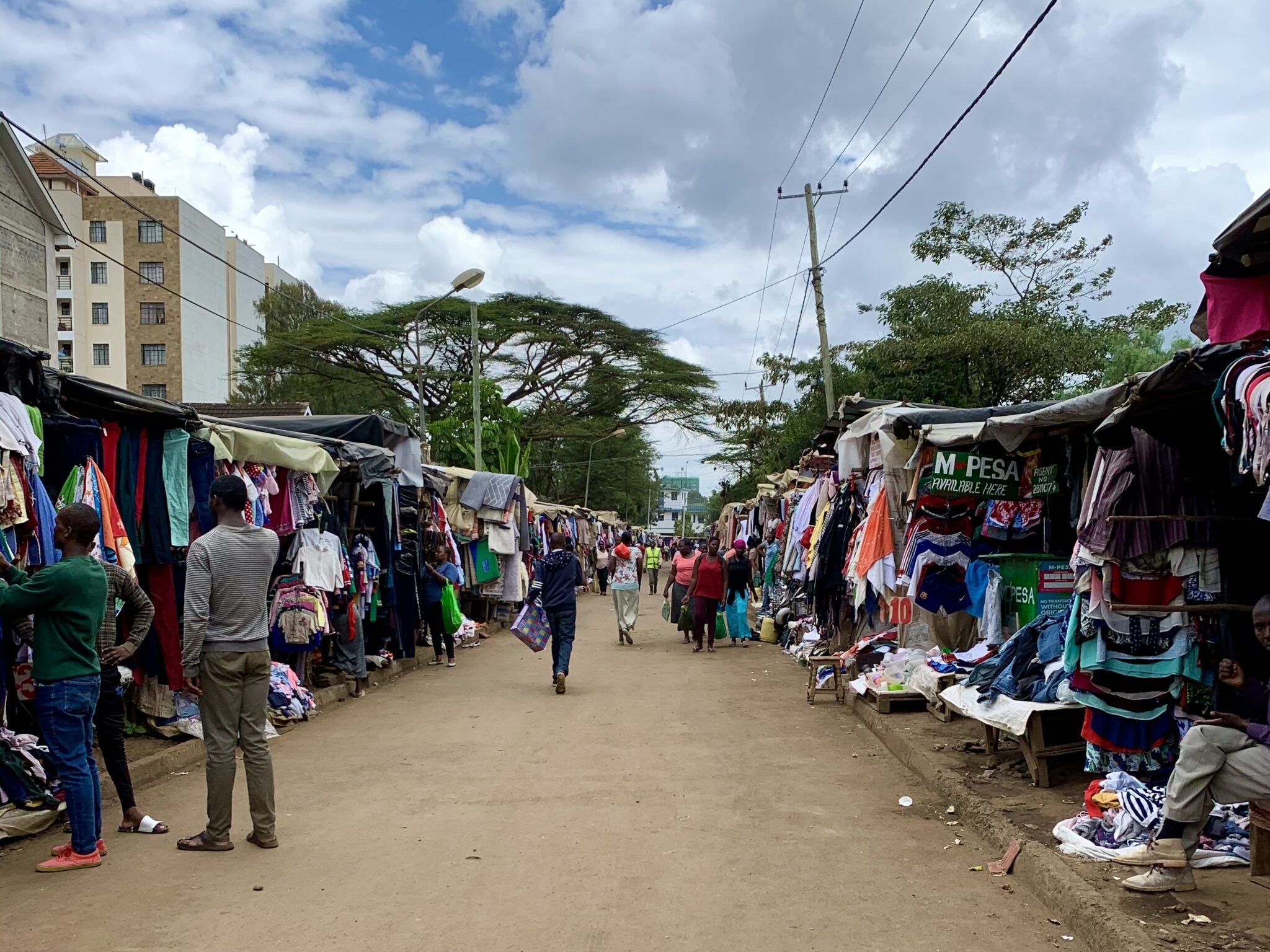Fashion & Textiles: Beyond The Wardrobe.
Mitumba: Fashion, Culture & Consequence
For decades, mitumba (secondhand clothing) has been at the heart of Kenya’s fashion scene. For many, it’s a budget-friendly option; for others, it’s the thrill of discovering a hidden gem. Either way, mitumba is about the joy of finding that perfect piece—affordable, unique, and just the right fit.
TOI Market, a second-hand clothing market in Nairobi | Image By: Patricia Korir
But behind the vibrant stalls and stylish finds lies a less visible story. At Dandora Dump Site—East Africa’s largest landfill—over 3,000 tonnes of waste arrive daily. Among the piles are discarded textiles, much of it fast fashion and unsold mitumba. Only a small fraction gets recycled. The rest? It quietly builds a mountain of waste..
Answering this requires conversation and observation; it also calls for deep reflection for those living not just in Nairobi, but across Africa. Understanding African women’s natural connection to the environment, and our unique-inclination to mitumba and fashion in general, Fashion & Textiles: Beyond the Wardrobe aims to educate on the global challenge of textile waste overproduction and the unethical disposal practices of fast fashion.
Our Solution
Mitumba has long attracted African women, offering a fairly inclusive form of luxury that continues to shape fashion culture across the continent. With the hope of involving more African women in conversations around sustainability and shared futures, in September and November 2024, Sisters in Climate organised two educational day trips to the Dandora Dump Site in partnership with Threading Change.
The curated experiences brought together 25+ women interested in understanding the realities of textile overproduction and the unethical disposal practices of fast fashion.
The trips created a powerful space for listening, learning, sharing, and engagement. It connected urban African women in Nairobi with waste pickers in Dandora—fostering empathy, deeper understanding, and critical reflection on the intersections of fashion, waste, and climate justice.


